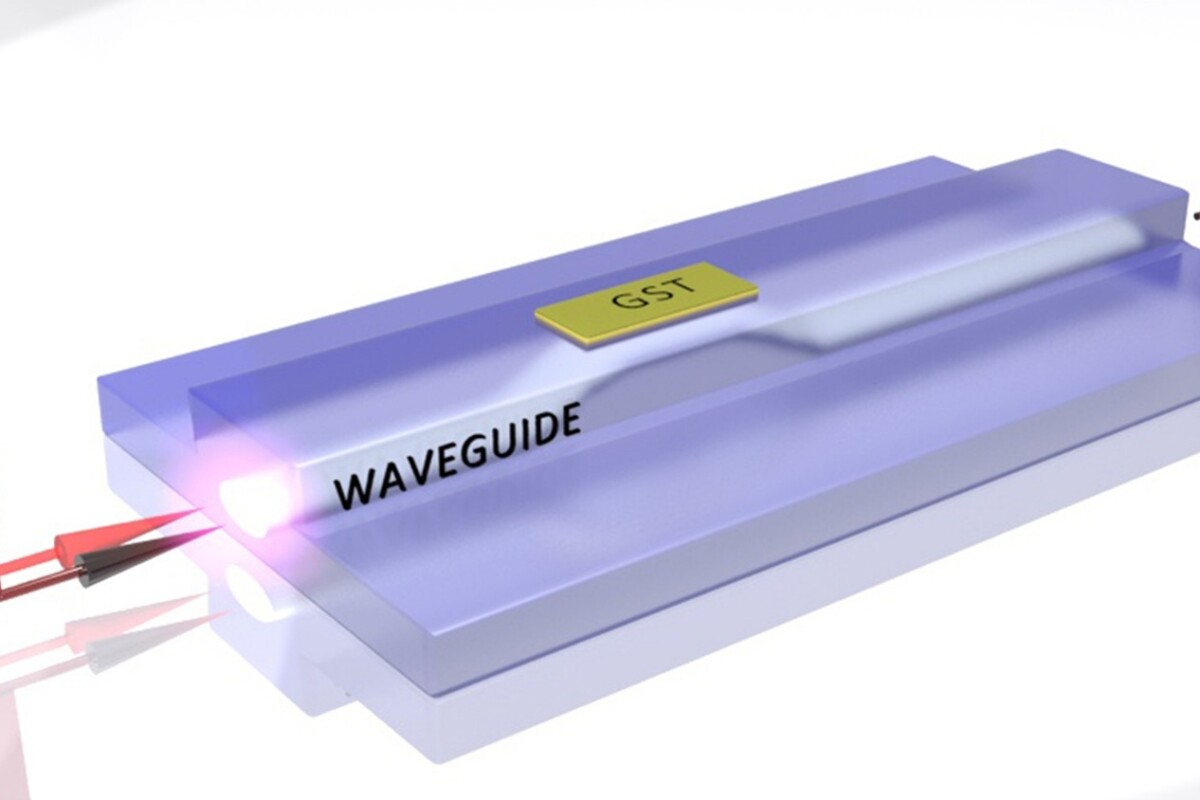A newnon-volatile optical memory has been created by researchers working at the KarlsruheInstitute of Technology (KIT) and the universities of Münster, Oxford, andExeter. Utilizing innovative phase-change materials to store information, thenew device promises to significantly improve processing speeds by effectivelyeliminating the existing bottleneck of having to convert optical signals into electricalsignals for storage and then back again for transmission.
Optical microprocessors may one day result in quantum computer systems that take advantage of the practical application of high-speed, ultra-efficient, light-based information exchange. However, to make such efficiency a reality, an all-optical system of information storage and interchange must be created to avoid what is known as the von Neumann bottleneck, where most computer time is spent in moving information between storage and the central processing unit rather than operating on it. As such, the exchange of data between processors and the memory stymies the speed of modern computers.
To help overcome this problem, researchers have now created the first all-optical, permanent computer memory.
"The memory is compatible not only with conventional optical fiber data transmission, but also with latest processors." said Professor Harish Bhaskaran of Oxford University.
According to the researchers, the new memory is capable of retaining data for decades without power. At its core, the device is created from phase change materials, whose novel abilities mean that they can alter their optical properties depending on how their atoms have been arranged – in this case an amorphous alloy, Ge2Sb2Te5 (GST), which is able to switch between crystalline (regular) and amorphous (irregular) states. In this way, the device is able to store large numbers of bits in a multi-level memory formed in a single cell just a billionth of a meter in size.
As a bonus, the multi-level memory can store information in multiple states – not just the standard binary 0s or 1s – and is even able to perform automatic equations within the memory itself. And all of this within exceedingly short periods of time.
"Optical bits can be written at frequencies of up to a gigahertz. This allows for extremely quick data storage by our all-photonic memory," said Professor Wolfram Pernice who led a working group on the project at KIT.
To store data, the material in the memory is changed from crystalline to amorphous using ultra-short pulses of light. To erase data, the material is changed back from amorphous to crystalline using the same light pulses. A series of weaker light pulses are used to read the data from the amorphous (stored) state.
The researchers believe that, combined with all-optical connections, totally optical on-chip memory devices may one day substantially enhance computer performance whilst simultaneously reducing energy consumption by avoiding the energy-intensive steps of transforming optical data into electronic signals and back again.
The results of this research were recently published in the journal Nature Photonics.
Source: KIT




